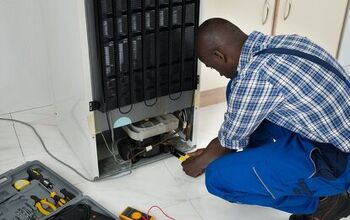6 Things Your Home Inspector Needs You To Know

Whether you’re buying or selling your home, a home inspection is a valuable asset. An inspection report gives you a heads-up on potential issues with the property and allows you to plan for upcoming repairs or replacements. But before you make any final decisions based on the inspection, there are a few things your home inspector needs you to know.
Standard home inspections don’t check every single part of your home and they aren’t code enforcers. In some cases, you’ll need additional inspections. They also don’t look behind walls or dismantle items. Your inspector might give you a ballpark figure of what certain fixes might cost, but it’s up to you to get accurate quotes from professionals.
Home inspectors don’t hope to find issues with your home. They want what you want — everything to check out and be in great shape. However, it’s their job to give you an honest report on the condition of your property based on what they can see.
Things You Need To Know About Home Inspections
When you’re about to purchase a home, an inspection could be the key to giving you some wiggle room in negotiations. It’s also a great way to save you a ton of time, money and hassle, since it could prevent you from dealing with unexpected problems.
However, you won’t find out every little detail about a house from a regular home inspection, and that’s important. Many people assume that if they get a good report, their house is perfect. But that isn’t always the case.
Six things your home inspector needs you to know regarding what they do
1. Your Home Inspector Doesn’t Profit From Finding Problems
When you hire a professional home inspector, you’ll pay a flat fee based on their expertise, the house size, any special features, and the location. Inspectors take into consideration how long an inspection will take, their travel time, and the age of the home.
Typically, you can expect to pay between $300 and $600 for a home inspection, but you’ll know this number upfront. If the inspector finds problems, they aren’t going to come back at the end and add to the final rate.
Therefore, don’t think your inspector is suddenly compiling a long list of issues so they can pad their pockets. What they find and include in their final report has no bearing on what you pay.
2. The Home Inspector Wants To Give You Good News
As mentioned previously, the number of problems an inspector uncovers won’t affect their pay. So, there’s no benefit for them to create or find issues with a property. The entire benefit goes to you.
As much as you don't want anything to be wrong with your potential future home (or existing one if you’re selling), there’s likely something. It’s rare for a property to pass an inspection with flying colors and not have any issues whatsoever. But this doesn’t mean every problem will be a major catastrophe.
However, some people might think an inspector points out problems or exaggerates issues to appear more knowledgeable. But there’s no reason for them to do this. You already hired them, they got the job, they’re doing the work.
And if they’re a professional (which hopefully they are because you asked all the right home inspector questions), they’ll do a thorough and honest assessment. Afterwards, the inspector will read through the final report with you and point out which things should be a top priority.
3. A Standard Home Inspection Looks At What's Visible
Inspectors look at what they can see when they go through a property. They don’t remove walls or cut out sections of sheetrock. Inspectors don’t take things apart to discover why something isn’t working. They look at what is visible and base their report on that.
Now, if an inspector spots something that seems suspicious (a piece of paneling on one section of a wall), they will point that out as questionable. They might say something like, “Why is that there? They (the sellers) could be trying to cover something up.” In this case, the inspector will note this in their report and advise you to ask the sellers or their agent about it.
Sellers are required to disclose any known issues about their property. So, if they knowingly covered up damage or some other problem and failed to tell you about it, you’ll have some legal options post-sale. Depending on the issue, you may be able to request compensation for the repairs, or in certain situations, dissolve the deal.
4. Inspectors Don’t Get Kickbacks For Additional Inspections
If your home inspector suggests you get a specialized inspection, it’s because they spot something they think needs a more thorough check. It’s not because they’re getting some referral bonus or kickback from another inspector. In most cases, these different inspectors aren’t associated with the same company or they work as individuals.
Some examples of additional inspections are termite inspections, plumbing, electrical, roof, radon, mold, and the foundation. If your inspector suggests one of these, it’s advisable to take action, as it could save you from a lot of unnecessary stress in the future.
5. Home Inspectors Are Not Code Enforcers
A home inspector and a code inspector are two different professionals. Therefore, when your inspector is assessing the property, they won’t likely point out code issues. If they are extremely knowledgeable and thorough, they might spot them. However, they don't write up code violations.
Instead, if they spot something they suspect is not up to code, they will mention it to you and make a note. In this case, they would suggest you get the appropriate professional in the property to assess the issue.
For example, if they see something suspicious with the electrical panel, they’ll recommend having a licensed electrician look at it. You can then take this information back to the sellers and their agent and say you’re having an electrician look at the panel.
If the electrician finds a problem or that something isn’t to code, you’ll take that news to the sellers. You then have some recourse to ask the sellers to help with repairs. Or, at the very least, consider this issue and the costs it entails in your negotiations.
6. Don’t Make Decisions Based On Home Inspector’s Estimates
Not all home inspectors necessarily know the precise costs associated with various repairs and problems. A knowledgeable professional could give you a good ballpark estimate. However, it’s important to base your decisions on quotes from the appropriate professionals.
For example, the home inspector mentions a roof leak, and says something like, “It should cost you about $1,000 to fix it.” You take this as gospel and decide, not a big deal, you love the house, and it’s worth it. Then, after you’re cozy in your new home, you decide to call a roofer to address the leak.
The roofer comes out and evaluates the situation thoroughly and surprises you with the news that the whole roof is a mess. You’ll need to replace it as soon as possible. You get a second and third opinion, only to hear the same conclusion. Suddenly, that seemingly small $1,000 problem just morphed into a $12,000 or more issue.
Wrapping Up The Things Home Inspectors Need You To Know
Getting a home inspection is a great choice and one you should definitely consider when you’re buying or selling your home. But make sure you know exactly what to expect from the inspection and be smart about how you use the information.
Inspectors won’t look behind walls or get invasive during a standard inspection. Therefore, if they suggest you get additional assessments, take their advice. They aren’t trying to get extra money or put on a show, they want you to get a clear, objective picture of the property.
Don’t expect home inspectors to find code violations or give you accurate estimates for repairs. You’ll need specialized professionals for these. But a thorough inspector will point out questionable issues and guide you to the right pros for the job. Above all, know your home inspector isn’t trying or hoping to give you bad news.
Related Guides:

Stacy Randall is a wife, mother, and freelance writer from NOLA that has always had a love for DIY projects, home organization, and making spaces beautiful. Together with her husband, she has been spending the last several years lovingly renovating her grandparent's former home, making it their own and learning a lot about life along the way.
More by Stacy Randall












![The 5 Best Angle Grinders – [2022 Reviews & Buyer's Guide]](https://cdn-fastly.upgradedhome.com/media/2023/07/31/9071326/the-5-best-angle-grinders-2022-reviews-buyer-s-guide.jpg?size=350x220)
![10 Best Electric Lawn Mowers - [2022 Reviews & Top Rated Models]](https://cdn-fastly.upgradedhome.com/media/2023/07/31/9070486/10-best-electric-lawn-mowers-2022-reviews-top-rated-models.jpg?size=350x220)












![How To Reset A Whirlpool Cabrio Washer [In 5 Easy Steps!]](https://cdn-fastly.upgradedhome.com/media/2023/07/31/9076531/how-to-reset-a-whirlpool-cabrio-washer-in-5-easy-steps.jpg?size=350x220)
